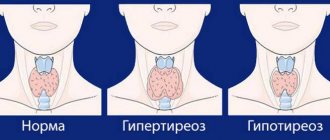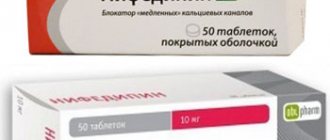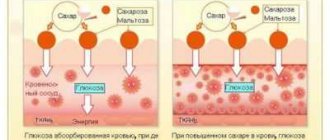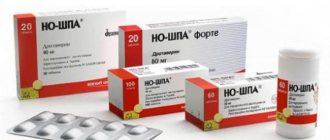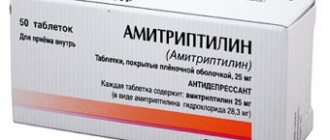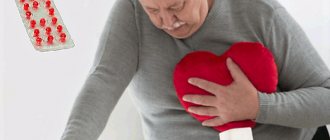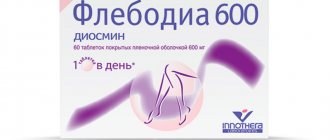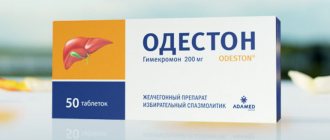Category: Published 12/02/2016 · Comments: · Reading time: 4 min · Views: 4,789
The antihypertensive drug is Egilok. What do these pills help with? The drug has antiarrhythmic and antianginal properties. The instructions for use suggest taking Egilok tablets for high blood pressure, migraines, and angina.
What is the difference between Egilok and Egilok S and how can it be replaced
Egilok S is also included in the class of beta1-blockers, which belongs to cardioselective drugs. It does not have internal membrane-stabilizing and sympathomimetic activity. This means that the drug is able to block beta1-adrenergic receptors, but does not stimulate them.
To the question “what is the difference between Egilok and Egilok S,” we can answer that the latter has a more extended period of action. In the blood plasma, its concentration is constantly observed, which gives a persistent clinical effect that lasts more than a day. Due to the fact that there are no significant Cmax in the blood plasma, it has greater ß1-selectivity compared to conventional tablet forms containing metoprolol.
The enumeration of how Egilok differs from Egilok S does not end here. The second option has a much lower risk of side effects. In addition, each tablet contains many pellets (microgranules) that release the metoprolol succinate element. When the tablet enters the gastrointestinal tract, it breaks down into individual pellets. They function as independent particles and guarantee a controlled release of the main substance for 20 hours or more. The speed of this process is determined by the acidity of the environment.
One more point can be noted in resolving the question of how Egilok differs from Egilok S.
The difference is in the dosage - regular tablets are usually taken 2 times a day, dividing the dose into morning and evening. A long-acting drug is sufficient to use once a day, preferably in the morning. The dragees are swallowed without crushing and washed down with water.
One more point: Egilok requires storage at a temperature of 15-25 degrees, Egilok S can withstand temperatures up to 30 degrees.
Overdose symptoms for both drugs are identical: slow heart rate (bradycardia), heart failure, decreased blood pressure, increased sweating, tremor (trembling of the limbs), hallucinations, nausea, vomiting.
When deciding what to replace Egilok with, you can consider various options. However, the final decision on this issue should be made only by the doctor after a complete examination of the patient.
The same applies to cases where the problem of taking medications together arises. If, for example, a patient is interested in whether it is possible to take Nifecard and Egilok, then the relevance of such a regimen can only be determined by a specialist during a face-to-face visit.
At the same time, it is not always possible to choose the right option the first time - a healthcare worker may go through several systems before finding the only one that is correct for a particular patient.
Judging by the reviews, experts are often asked the question: Metoprolol or Egilok - which is better? In fact, these are synonyms - Egilok is metoprolol.
- Anaprilin (producing countries - Russia, Ukraine, Latvia). This drug has been on the pharmaceutical market for a long time - it belongs to the first generation of beta blockers. Now many doctors have abandoned its use due to its short period of action. Anaprilin is good in emergency cases - to block an attack of tachycardia, hypertension or panic attack. However, it is not suitable for systemic therapy.
- Concor (made in Germany). When choosing what to replace Egilok with, doctors often recommend the drug Concor. It has fewer side effects and is milder. It should also be taken into account that if you abruptly stop taking Egilok, the consequences can be the most tragic, even fatal. But due to the fact that the drug is quickly addictive, after a certain period of time it ceases to produce the desired effect. There is a need for a gradual transition to a new drug. Concor is perfect in this case. Its effectiveness is much higher: for comparison - 50 mg of Egilok = 5 mg of Concor. Thanks to this, the load on the organs is reduced, so the body tolerates treatment more easily. In addition, the duration of action of the new drug has been doubled. The only disadvantage of Concor is the higher price.
- Bisoprolol (manufacturers - Germany, Ukraine, Russia, Israel). Egilok and Bisoprolol are identical drugs, so replacing one drug with another is quite acceptable. However, the second remedy is more interesting in that it retains its antihypertensive properties the next morning after taking the pill, while its analogues do not have a similar effect. As a rule, they partially or completely stop lowering blood pressure for several hours (usually before the next dose of the drug is taken.
- Atenolol (producing countries - India, Russia, Denmark).
Those who want to change the drug and choose what to replace Egilok with should know that in comparison with it, Atenolol is a cheaper, but also less effective medicine. Its daily requirement is from 100 to 250 mg. Because of this, there is increased stress on the body.
And in financial terms, such a purchase is unprofitable due to the larger number of tablets used per day. Conclusion: it is worth purchasing it if there are no more effective medications in the pharmacy. Despite the possible identity of some drugs, you should definitely consult your doctor before changing tablets.
Egilok is a medication that lowers blood pressure, normalizes heart function and rhythm, and is a means to prevent heart attacks. The instructions for use contain all the recommendations for the rational use of the drug, which, if followed, can achieve maximum effectiveness of the drug. The price of the product, reviews from patients and doctors, possible imported and Russian substitutes (analogues) of Egilok will help you choose the most suitable treatment option.
Pharmacokinetics
The drug has a high rate of absorption in the gastrointestinal tract. Within 1.5-2 hours after administration, Cmax in blood plasma is achieved. Under the influence of the active substance, the increased activity of the sympathetic system in relation to the heart is suppressed. Why do Egilok tablets, when used regularly, cause a decrease in cholesterol levels in the blood serum. The bioavailability of the drug increases by 30-40% if metoprolol is taken with food.
Impaired kidney and liver function has virtually no effect on the excretion and absorption of the active substance. However, with severe liver dysfunction (cirrhosis, portacaval shunt), bioavailability increases significantly, and with chronic renal failure, the risk of unwanted side effects increases. In old age, the pharmacokinetics of the drug cannot be significantly changed.
After use, the medicine undergoes full absorption. Egilok has weak binding to proteins in blood plasma (no more than 10%). The drug is excreted from the body mainly in the form of metabolites, only 5% is excreted by the kidneys.
Metoprolol is quickly and completely absorbed from the gastrointestinal tract. The drug is characterized by linear pharmacokinetics in the therapeutic dose range.
Cmax in blood plasma is achieved 1.5–2 hours after oral administration. After absorption, metoprolol undergoes significant first-pass metabolism through the liver. The bioavailability of metoprolol is approximately 50% with a single dose and approximately 70% with regular use.
Taking with food can increase the bioavailability of metoprolol by 30–40%. Metoprolol is slightly (~5–10%) bound to plasma proteins. Vd is 5.6 l/kg. Metoprolol is metabolized in the liver by cytochrome P450 isoenzymes. Metabolites do not have pharmacological activity. T1/2 on average - 3.5 hours (from 1 to 9 hours).
No significant changes in pharmacokinetics were detected in elderly patients.
Impaired renal function does not affect the systemic bioavailability or excretion of metoprolol. However, in these cases there is a decrease in the excretion of metabolites. In severe renal failure (glomerular filtration rate less than 5 ml/min), a significant accumulation of metabolites is observed. However, this accumulation of metabolites does not increase the degree of beta-adrenergic blockade.
Impaired liver function has little effect on the pharmacokinetics of metoprolol. However, in severe liver cirrhosis and after a portacaval shunt, bioavailability may increase and overall body clearance may decrease. After portacaval shunt, the total clearance of the drug from the body is approximately 0.3 L/min, and the AUC increases approximately 6 times compared with that in healthy volunteers.
Compound
The only active substance of the drug is the chemical component Metoprolol (in Latin - Metoprololum). Its amount differs for different forms of the drug Egilok (manufactured under the international name Egilok):
- Tablets - 25, 50 or 100 mg.
- Egilok S (C) coated and modified release - 25, 50, 100 and 200 mg.
- Long-acting tablets Egilok retard - 50 or 100 mg.
Other components of the drug are the following substances:
- povidones;
- starches;
- cellulose derivatives;
- Mg salts;
- Si dioxides;
- titanium oxides;
- PEG;
- ethyl citrates;
- Sahara.
Pharmacological group, mechanism of action
Pharmacotherapeutic group of Egilok: beta1-blockers.
Egilok is a cardioselective drug that targets the myocardium and the coronary vessels that supply it. Selective beta1-blockers at a reasonable dosage work only with beta1-adrenergic receptors, blocking only them. Another type, responsible for breathing, gestation of the fetus, peripheral vessels - β2-adrenergic receptors - calmly continues to work, the egilok is not directed at them. The medicine purposefully moves towards its intended target, finding the receptors for which it was created. By binding to them, egilok does not allow catecholamines to produce a strong shake-up in the body under provoking factors:
- Emotional stress;
- Increased physical activity;
- Sudden changes in weather (almost 100% of “vascular” patients react to this by worsening their condition).
The sympathetic system, under the influence of egilok, reduces activity towards the myocardium. Egilok, by blocking β1-adrenergic receptors, slows down the pulse, reduces four important values at once: heart rate, cardiac output, force of contractility and blood pressure numbers.
Such support for the heart and its vessels improves the quality of life and significantly prolongs it.
When beta1-adrenergic receptors are blocked, the heart works calmly. Its blood filling is carried out more completely and without overload, at the moment of relaxation (diastole phase) of the ventricles. The group's medicines are a lucky find for pharmacists. Egilok () is a typical representative of a number of beta-blockers.
The problem for patients with high blood pressure is left ventricular dysfunction, enlargement of the ventricle due to excess load (blood pressure) on it. Regular long-term use of Egilok allows you to reverse this pathology. The ventricle, without experiencing overload, changes size: it returns closer to normal.
Normalizing the size and function of the left ventricle and restoring the time needed for rest (diastole) has a direct impact on patient survival. Mortality from vascular accidents, especially in men, is significantly reduced. This is why Egilok tablets are taken: to prevent such misfortunes as heart attacks, strokes, and cases of sudden death. If hypertension is moderate, “mild,” then the therapeutic effect is more pronounced.
The need of the heart muscle for oxygen supply with blood decreases, and blood supply increases. The preload on the heart is reduced; it does not have to make as much effort to pump blood as before taking the medicine. Oxygen is absorbed better than what happened at high heart rate and pressure.
The selectivity of Egilok is an advantage over non-selective drugs of the same group. It has almost no spasmodic effect (with adequate doses) on the respiratory muscles (bronchi), as well as on the smooth muscles of the walls of peripheral vessels. It also does not affect tissues of muscles not included in the myocardial zone. It works only cardiologically, with a positive effect.
Egilok is good for diabetics: without affecting metabolic processes, it does not provoke hypoglycemia. Insulin secretion does not depend on the presence of metoprolol (egilok) in the blood. Cholesterol levels with prolonged therapy with Egilok are significantly reduced.
Release form
Egilok is produced in the form of tablets with different durations of action:
- pills. They are painted white, have a round shape and a line in the middle for convenient division of the tablet into two parts. In packs of 30 or 60 tablets;
- tablets (Egilok S), coated, providing a modified release of Metoprolol throughout the day. White round tablets. Packs of 30 tablets;
- retard tablets, coated, have a long-lasting effect. Packs of 30 tablets.
The manufacturer Egis includes a version of the instructions for use approved in Russia in each original package.
Using Egilok: the effect of the drug on the body, its structure and characteristics
Egilok belongs to the category of adrenergic blockers that neutralize the effect of hormonal connections of a certain group of substances. They are adrenaline and its derivatives, which stimulate the heart and are responsible for accelerating its rhythm. and this increased heart rate leads to an increase in pressure in the vessels through which blood moves. The active component of the drug is metoprolol tartrate, which blocks the effect of adrenaline and reduces the load on the circulatory system. At the same time, all other components perform an exclusively auxiliary function, supporting the action of the main substance. It is produced in the form of white round tablets that are odorless. Taking Egilok leads to expansion of the coronary supply vessels. As a result, large volumes of blood begin to flow into the heart, bringing with it nutrients and oxygen. In addition, under the influence of metoprolol tartrate, the transmission of nerve impulses to muscle structures is partially blocked, which helps restore heart rhythm and reduce contraction frequency. However, taking the drug has many contraindications and side effects due to the action of metoprolol. Although in general it is quite well tolerated by people and has won extremely positive reviews. Alcohol consumption has similar effects on the cardiovascular system, but it also has its own differences. Once in the blood, ethanol is carried along with it throughout the body, penetrating all organs and tissues. Under its action, a sharp dilation of blood vessels occurs, as a result of which blood pressure decreases and the heart rate decreases. However, such effectiveness does not last long, since as a result of the oxidation of alcohol molecules, they begin to have a diametrically opposite effect on the circulatory system. The flow becomes more frequent, the pressure rises and the load on the vessels increases significantly. Alcohol also has a pronounced toxic effect on the brain, leading to the death of many nerve cells, and the liver, which is responsible for removing it from the body. One of the substances that promotes the decomposition of ethanol molecules into atoms is adrenaline.
pharmachologic effect
Egilok belongs to the pharmacological group of selective adrenergic receptor blockers, which are located in the heart and blood vessels. This mechanism of action provides the following pharmacological actions:
- decrease in pressure. Most often, Egilok is prescribed to adults with high blood pressure, which accompanies many cardiovascular pathologies;
- reducing the frequency of heart attacks;
- reducing the severity of heart attacks if they occur;
- improvement of the general condition of a patient suffering from hypertension and angina pectoris;
- reducing the possibility of recurrence of a heart attack;
- normalization of heart rate;
- slowing down the heart rate. Tablets for rapid pulse Egilok allow you to quickly normalize your heart rate and help with tachycardia;
- decreased myocardial conductivity;
- decreased contractility of the heart muscle;
- preventing the development of migraine attacks.
Important! If Egilok is used in average therapeutic dosages, then its effect on bronchial smooth muscles is minimal and has no clinical manifestations, unlike non-selective adrenergic receptor blockers (Anaprilin). Like Egilok, the drug has similar effects, but can negatively affect the bronchi.
Egilok dosage and rules of use
Egilok tablets are available in dosages of 25, 50 and 100 mg, and retard forms contain 50 and 100 mg of metoprolol. Doses must be selected by the doctor strictly individually. Start with the smallest dose (25 mg) and gradually increase to the desired effect. The maximum daily amount is 200 mg.
A feature of cardioselective beta blockers is that as the dose increases, they lose their selectivity of action and can lead to a deterioration in the patient's condition.
One of the important criteria that the desired blocking of adrenergic receptors will manifest itself is the pulse rate. It needs to be measured daily.
The optimal rhythm of contractions when taking Egilok is 50 - 60 beats per minute. If it is achieved, then this dose is continued to be taken in the future, as the pulse rate increases or decreases, it is adjusted.
This tactic is followed to treat arrhythmia and prevent recurrent heart attacks. For arterial hypertension and angina pectoris, the value of blood pressure and the intensity of angina attacks and ECG diagnostic data are also taken into account. Discontinuation of the drug should be smooth, since sudden cessation of use causes pressure surges, increased heart pain and progression of signs of heart failure.
Evaluation of the effectiveness and tolerability of Egilok-retard by patients and doctors
Indications for use
The drug in any form is prescribed in the presence of the following pathologies:
- various forms of hypertension;
- heart rhythm disturbances of various etiologies;
- angina pectoris;
- consequences of myocardial infarction;
- prevention of heart attacks;
- migraine prevention;
- cardiac ischemia;
- thyrotoxicosis. The medicine is used for this disease only as part of complex treatment to eliminate cardiac manifestations.
The indicated indications for use are approved in the official instructions, which were developed by the manufacturer based on clinical studies of the drug.
Drug interactions
Enter your pressure
130
on
90
Search in progress Not found
When used simultaneously with antihypertensive drugs, diuretics, antiarrhythmic drugs, nitrates, there is a risk of developing severe arterial hypotension, bradycardia, and AV block.
When used simultaneously with barbiturates, the metabolism of metoprolol is accelerated, which leads to a decrease in its effectiveness.
When used simultaneously with hypoglycemic agents, the effect of hypoglycemic agents may be enhanced.
When used simultaneously with NSAIDs, the hypotensive effect of metoprolol may be reduced.
When used simultaneously with opioid analgesics, the cardiodepressive effect is mutually enhanced.
When used simultaneously with peripheral muscle relaxants, neuromuscular blockade may be enhanced.
When used simultaneously with drugs for inhalation anesthesia, the risk of suppression of myocardial function and the development of arterial hypotension increases.
When used simultaneously with oral contraceptives, hydralazine, ranitidine, cimetidine, the concentration of metoprolol in the blood plasma increases.
When used simultaneously with amiodarone, arterial hypotension, bradycardia, ventricular fibrillation, and asystole are possible.
When used simultaneously with verapamil, the plasma Cmax and AUC of metoprolol increases. The minute and stroke volume of the heart, pulse rate, and arterial hypotension decrease. Possible development of heart failure, dyspnea and sinus node block.
With intravenous administration of verapamil while taking metoprolol, there is a risk of cardiac arrest.
With simultaneous use, bradycardia caused by digitalis glycosides may increase.
When used simultaneously with dextropropoxyphene, the bioavailability of metoprolol increases.
When used concomitantly with diazepam, a decrease in clearance and an increase in the AUC of diazepam is possible, which can lead to an increase in its effects and a decrease in the speed of psychomotor reactions.
When used simultaneously with diltiazem, the concentration of metoprolol in the blood plasma increases due to inhibition of its metabolism under the influence of diltiazem. The effect on cardiac activity is additively inhibited due to the slowing of impulse transmission through the AV node caused by diltiazem. There is a risk of developing severe bradycardia, a significant decrease in stroke and minute volume.
When used simultaneously with lidocaine, the elimination of lidocaine may be impaired.
When used simultaneously with mibefradil in patients with low activity of the CYP2D6 isoenzyme, it is possible to increase the concentration of metoprolol in the blood plasma and increase the risk of developing toxic effects.
When used simultaneously with norepinephrine, epinephrine, other adrenergic and sympathomimetics (including in the form of eye drops or as part of antitussives), a slight increase in blood pressure is possible.
When used simultaneously with propafenone, the concentration of metoprolol in the blood plasma increases and a toxic effect develops. It is believed that propafenone inhibits the metabolism of metoprolol in the liver, reducing its clearance and increasing serum concentrations.
When used simultaneously with reserpine, guanfacine, methyldopa, clonidine, severe bradycardia may develop.
When used simultaneously with rifampicin, the concentration of metoprolol in the blood plasma decreases.
Metoprolol may cause a slight decrease in the clearance of theophylline in patients who smoke.
Fluoxetine inhibits the CYP2D6 isoenzyme, which leads to inhibition of metoprolol metabolism and its accumulation, which can enhance the cardiodepressive effect and cause bradycardia. A case of the development of lethargy is described.
Fluoxetine and mainly its metabolites are characterized by a long T1/2, so the likelihood of drug interactions remains even several days after fluoxetine is discontinued.
There are reports of a decrease in the clearance of metoprolol from the body when used simultaneously with ciprofloxacin.
When used simultaneously with ergotamine, peripheral circulatory disorders may increase.
When used simultaneously with estrogens, the antihypertensive effect of metoprolol is reduced.
With simultaneous use, metoprolol increases the concentration of ethanol in the blood and prolongs its elimination.
Contraindications
According to the Egis company's annotation, Egilok is never prescribed for the following conditions:
- heart block;
- slow heart rate;
- heart failure;
- hypotension. The use of Egilok at low blood pressure is very dangerous for the health and life of the patient;
- allergy to any ingredients of the product;
- pulmonary edema;
- cardiogenic shock;
- pheochromocytoma;
- bronchial asthma. Despite the fact that the drug has a slight effect on the bronchial muscles, its use in asthma is undesirable due to the increased risk of complications;
- pathological disturbances of blood flow in peripheral vessels;
- simultaneous use of agents that have an inhibitory effect on monoamine oxidase (MAO);
- intravenous administration of Ca channel blockers - Verapamil, Diltiazem;
- children. Egilok is not used in pediatrics to treat pediatric patients.
Important! It is necessary to exclude the presence of contraindications for use before starting to take the medicine.
Side effects
At the beginning of use, you may feel tired. With further use, the following negative effects may occur:
- Pain in the chest area, arrhythmia, swelling of the extremities, cardiogenic shock, decreased heart rate, a sharp decrease in pressure when climbing, fainting, cold feet.
- Headaches, feeling tired, depressed, loss of attention, agitation, seizures.
- Nausea, stomach pain, dry mouth, intestinal motility disorders, liver disease, jaundice, hepatitis.
- Shortness of breath, the appearance of a rash, hyperemia of the skin, increased sweating, blurred vision, dryness of the whites of the eyes, inflammatory processes in the mucous membrane of the eyeball.
During pregnancy and lactation
"Egilok" is not prescribed to pregnant women or during lactation. Although the prescription is possible, if the positive effect for the mother outweighs the hypothetical harm to the fetus. If taking the drug is justified, then timely monitoring of the mother and fetus is necessary.
During the entire lactation, the use of the drug is also not recommended, which is associated with partial excretion of the active substance in milk. This leads to a pathology in the newborn such as bradycardia.
Instructions for use
The drug is often recommended to be taken once, preferably in the morning (before lunch). A single dose should not be chewed and should be taken with water. Eating does not change the effectiveness of the product.
Important! The dosage of the drug is always selected individually.
Regimen for hypertension
If hypertension is mild, then the daily amount of the active substance is 25 mg. In most cases, the initial dose per day is 50 mg in the morning. You can divide the daily dosage into 2 times - morning and evening (after lunch). If there is no effectiveness, the daily amount is increased to 100-200 mg once or in two doses.
Important! If taking Egilok alone is not enough even without increasing doses, additional antihypertensive or cardiac medications should be prescribed.
Course of treatment for angina, migraine and artymia
The daily amount is 100-200 mg, which should be divided into two applications (morning and evening).
Methods of use for the prevention of heart attack
The daily dosage is 200 mg of Metoprolol, which is always divided into two applications in the morning and evening.
Important! The dose should be adjusted downward for patients suffering from impaired liver function.
The duration of taking the drug is selected by the doctor, taking into account the tolerability of the drug, as well as the form of the disease being treated in the patient. Egilok can be taken without interruption for quite a long time.
Indications
"Egilok" is a means of combined action designed to help people suffering from heart and vascular diseases, as well as blood pressure disorders. Most often it is prescribed to older people, for whom it is an indispensable remedy. The indications for the drug are very broad and depend on the type of medicine.
General indications for prevention for Egilok, Egilok Retard and Egilok S are migraine, high blood pressure, angina pectoris, relapse after the first myocardial infarction:
- "Egilok" and "Egilok Retard" are prescribed for hyperthyroidism as one of the means of complex treatment and for hyperkinetic cardiac syndrome (a feeling of pulsation in the head and neck).
- "Egilok S" helps people with diseases such as premature ventricular contraction, supraventricular arrhythmias, atrial fibrillation, stable chronic heart failure, late stages of myocardial infarction, tachycardia.
- "Egilok Retard" is used for chronic heart failure in combination with other medications and to prevent various types of tachycardia.
"Egilok" is used to prevent premature compression of the ventricles and supraventricular arrhythmias.
Overdose
The consequences of taking high doses of the drug may be as follows:
- respiratory depression;
- severe decrease in pressure;
- heart block;
- nausea;
- bouts of vomiting;
- disturbances of consciousness;
- coma;
- spasms in the bronchi;
- decreased blood glucose levels;
- extrasystoles;
- convulsions;
- kidney dysfunction.
Measures to help in case of overdose are the following:
- administration of Atropine. It is important to administer the drug before performing the gastric lavage procedure;
- gastric lavage;
- use of sorbents;
- administration of Glucagon, Adrenaline (if necessary).
Important! The use of medications to assist the victim is selected individually depending on the symptoms.
Compatibility of Egilok and alcohol
Unlike a number of medicines that are relatively compatible with alcohol, this cannot be said about Egilok.
When consuming wine and vodka products during treatment with the drug, you should know in advance about the possible far from favorable consequences of such a combination:
1. First of all, this is a sharp decrease (even drop) in blood pressure.
Naturally, healthy people do not need Egilok. Accordingly, it is taken by those who have various heart problems. And for such patients, the combination of the drug with alcohol can lead to the worst thing - collapse. This critical condition occurs when there is a sharp drop in blood pressure, when the patient feels dizzy, weak, and may lose consciousness, and all because the brain experiences severe hypoxia. If you do not have time to provide emergency assistance, a person may simply die due to depletion of brain resources.
2. During treatment with Egilok, an overdose of ethanol occurs more often, since due to the blocking of adrenaline, ethyl alcohol oxidizes much more slowly and accumulates in the body, causing severe intoxication. The symptoms of this dangerous and unpleasant phenomenon are familiar to anyone who has experienced a severe hangover: weakness, dizziness, incoherent speech, confusion, drop in blood pressure, breathing problems, which together can even lead to death.
3. Finally, the liver receives a double blow - it is hit by both toxic Egilok and the breakdown products of alcohol. The danger is that many very serious liver diseases are practically asymptomatic, and many find out about existing diseases too late, and it is also impossible to predict how the body will react to the next intake of alcohol and medications. Either everything will pass unnoticed, but destructively, or liver dysfunction will become so widespread that it will be time to talk about toxic hepatitis, cirrhosis, etc.
Therefore, no matter how much you would like to carefreely go to a party with friends and get drunk, common sense dictates otherwise: “You need to drink wisely and not mix alcohol with medications.”
Attention, TODAY only!
alcoruguru.ru
Interaction with other tools
The condition of patients who use the following drugs simultaneously with Egilok should be monitored:
- adrenergic blockers of other groups (also in the form of eye drops);
- ganglion blockers;
- MAO inhibitor.
When combining such drugs, increased effectiveness of the drug, overdose symptoms and side effects may occur.
Drugs that enhance the activity of Egilok include the following:
- Propafenone;
- adrenergic blockers;
- anesthetics for inhalation use;
- Hydralazine;
- Cimetidine;
- Ethanol;
- Phenytoin;
- organic nitrates;
- Fluoxetine;
- cardiac glycosides;
- Diphenhydramine;
- Sertraline;
- Paroxetine;
- Diltiazem;
- Verapamil.
Important! It is prohibited to combine Egilok with parenteral forms of calcium channel blockers, since the likelihood of developing bradycardia and hypotension increases (as described in the Vidal reference book).
Compatibility with the following products leads to a decrease in the effectiveness of Egilok:
- Rifampicin;
- Indomethacin;
- Adrenalin;
- Phenylpropanolamine;
- Barbiturates.
When taking Egilok together with medications that have a hypoglycemic effect, their effect is prolonged and enhanced. It is important to control sugar levels in such patients.
Compatibility with other drugs
If the prescription of Egilok and other drugs is required at the same time, then enhanced medical monitoring of the patients’ condition is required. This applies to the following combinations:
- hypotensive - increases the risk of blood pressure drop;
- calcium antagonists - a sharp decrease in the frequency and strength of heart contractions;
- antiarrhythmic and cardiac glycosides - bradycardia and atrioventricular block may develop;
- neuroleptics, ethyl alcohol, tranquilizers, drugs for insomnia and depression - provoke arterial hypotension;
- drugs for general anesthesia - suppression of heart function;
- adrenergic stimulants - the likelihood of increasing pressure, slowing down the rhythm until contractions stop;
- anti-inflammatory drugs and female sex hormones - reduce the hypotensive effect;
- medications for diabetes - erased signs of a drop in sugar are possible.
During pregnancy and lactation
If you need to prescribe Egilok during pregnancy, it is important to take into account that the drug can cause a decrease in the blood sugar level of the fetus and slow down the growth and heart rate.
Important! Taking the drug must be stopped 1-2 days before the expected date of birth.
Despite the fact that Egilok penetrates into mother's milk during lactation, taking the drug in therapeutic dosages does not lead to disturbances in the body of a newborn baby during breastfeeding. In complicated cases, newborns may experience the following complications:
- respiratory depression;
- hypoglycemia;
- decrease in pressure.
It is important to follow the doses of Egilok prescribed by your doctor when breastfeeding.
Side effect
The drug "Egilok", instructions and reviews indicate this, can cause negative reactions from various body systems. Adverse reactions include:
- palpitations, weakness, abdominal pain;
- nasal congestion, decreased libido;
- sinus bradycardia, increased fatigue;
- dry mouth, itchy skin;
- orthostatic hypotension, headache;
- constipation, shortness of breath; hives, weight gain;
- cardialgia, depression, nausea, vomiting;
- rash, exacerbation of psoriasis, arrhythmia;
- confusion, change in taste;
- leukopenia, increased sweating;
- back pain, asthenic syndrome;
- agranulocytosis, photodermatosis, hypoglycemia;
- skin hyperemia, memory impairment.
By
Analogs
Pharmaceutical companies produce a large list of products that can replace Egilok. Synonyms of the drug based on Metoprolol include the following:
- Anepro;
- Betalok;
- Betalok Zok;
- Corvitol;
- Vasocardin;
- Metokor;
- Metoprolol from various manufacturers, among which there are domestic analogues of Egilok in Russia, which are cheaper. Egilok or Metoprolol are identical products with completely identical composition of drugs;
- Emzok;
- Azoprol.
Egilok differs from these drugs in its manufacturer and the presence of different forms - prolonged and modified release of Metoprolol, which makes it possible to prescribe the drug once a day.
In some cases, patients need to replace the drug with other active substances from the same group, which have differences in the chemical structure and spectrum of activity. These active ingredients include the following:
- Betaxolol;
- Atenolol. Based on this ingredient, you can select Russian or foreign analogues. Many of them are quite cheap;
- Bisoprolol (Concor). Often patients try to find out which is better - Egilok or Concor. These are drugs from one group of selective drugs that have an identical effect;
- Nebivolol;
- Esmolol.
Analogues of the drug
In some cases (for example, due to intolerance to the components), it is recommended to use substitutes for Egilok tablets; what they are used for, dosage and special instructions are indicated in the instructions, which must be read before starting treatment.
Drug analogues include the following drugs:
- Betaloc ZOK – contains a similar active ingredient;
- Bisoprolol, Concor – active ingredient bisoprolol;
- Nebilet is the active ingredient nebivolol.
special instructions
It is important to monitor the patient’s blood pressure and pulse while taking the drug, especially those suffering from diabetes.
It is forbidden to abruptly discontinue the drug, since a sharp increase in blood pressure is possible. Cancellation of Egilok should be carried out only gradually over two weeks.
If severe bradycardia or a decrease in blood pressure develops, the medication should be discontinued and the patient's condition monitored.
During surgical interventions, drug withdrawal is not carried out. It is important to inform the surgeon that the patient is taking Egilok.
If you are lactose intolerant, the drug is not used.
Patients who operate vehicles and machinery during treatment should be especially careful, as undesirable reactions may develop in the form of disturbances in attention, consciousness and heart function.
The cost of the drug is influenced by the dose of Metoprolol:
- Egilok 25 mg tablets No. 60 cost from 120 rubles;
- tablets 50 mg No. 60 - from 140 rubles;
- 100 mg No. 30 - from 115 rubles;
- 100 mg No. 60 - from 178 rubles;
- Egilok S 50 mg No. 30 - from 220 rubles;
- Egilok S 100 mg No. 30 - from 275 rubles;
- Egilok retard 50 mg No. 30 - from 230 rubles;
- Egilok retard 100 mg No. 30 - from 235 rub.
Side effects and contraindications of Egilok
Possible side effects that may occur when taking Egilok:
- shortness of breath, bronchospasm;
- allergic rhinitis, mucus discharge from the nasal passages;
- pain in the epigastric region, nausea, vomiting, diarrhea and other dyspeptic disorders;
- insomnia;
- dizziness, headache, decreased concentration, deterioration of cognitive functions of the brain;
- decreased heart rate;
- increased sweating – hyperhidrosis;
- allergic reactions;
- excessive fatigue, lethargy, apathy, melancholy.
Please note that abrupt refusal to take Egilok is not recommended. This may cause an attack of angina. The medication should be discontinued gradually, gradually reducing its dose over 10 days.
If treatment is abruptly stopped, withdrawal syndrome may occur (increased angina attacks, increased blood pressure). During drug withdrawal, patients with angina pectoris should be under close medical supervision.
In most cases, the medication is well tolerated.
Overdose
It is not recommended to increase the dose indicated in the annotation.
Symptoms of oversaturation of the body with metoprolol: arterial hypotension, acute heart failure, bradycardia, cardiac arrest, AV block, cardiogenic shock, bronchospasm, impaired breathing and consciousness/coma, nausea, vomiting, generalized convulsions, cyanosis (appears 20 minutes - 2 hours after administration ).
From the digestive system: nausea, vomiting.
Treatment: gastric lavage, symptomatic therapy.
Contraindications:
- breastfeeding (lactation period);
- age under 18 years;
- heart failure in the decompensation phase;
- cardiogenic shock;
- hypersensitivity to metoprolol and auxiliary ingredients of the drug;
- severe bradycardia;
- sinoatrial block, AV block - 2nd or 3rd degree block;
- Prinzmetal's angina.
With caution: diabetes mellitus; metabolic acidosis; bronchial asthma; COPD; renal/liver failure; myasthenia gravis; pheochromocytoma (when used simultaneously with alpha-blockers); thyrotoxicosis; AV block of the first degree; depression (including history); psoriasis.
Contraindications to the use of the drug
are: hypersensitivity to metoprolol or any other component of the drug, as well as other beta-blockers; atrioventricular (AV) block II or III degree; sinoatrial block; sinus bradycardia (heart rate less than 50 beats/min); sick sinus syndrome; cardiogenic shock;
severe peripheral circulatory disorders; heart failure in the stage of decompensation; age under 18 years (due to lack of sufficient clinical data); simultaneous intravenous administration of verapamil; severe form of bronchial asthma; pheochromocytoma without simultaneous use of alpha-blockers.
Due to insufficient clinical data, Egilok is contraindicated in acute myocardial infarction, accompanied by a heart rate below 45 beats/min, with a PQ interval of more than 240 ms and SBP below 100 mmHg.
With caution: diabetes mellitus; metabolic acidosis; bronchial asthma; COPD; renal/liver failure; myasthenia gravis; pheochromocytoma (when used simultaneously with alpha-blockers); thyrotoxicosis; AV block of the first degree; depression (including history); psoriasis; obliterating diseases of peripheral vessels (intermittent claudication, Raynaud's syndrome); pregnancy; lactation period; elderly age; patients with a history of allergic reactions (possible decreased response when using adrenaline).
- SSSU;
- cardiogenic shock;
- severe bradycardia (less than 50 beats per minute);
- lactation period;
- simultaneous use of MAO inhibitors;
- age under 18 years;
- hypersensitivity to the components of the drug in particular, or to beta-blockers in general;
- sinoatrial block;
- severely impaired peripheral circulation;
- severe bronchial asthma;
- AV block - 2nd or 3rd degree block.
Interaction of egilok with strong drinks
How does alcohol work? It quickly dilates blood vessels and as a result, blood pressure decreases. Then they sharply narrow with a jump in pressure upward. Alcohol also negatively affects the brain and liver. All strong drinks lead to an increase in the level of adrenaline in the body.
The interaction of egilok and alcohol is a threat of collapse. This condition often occurs when blood pressure drops sharply. A person experiences a lack of oxygen in the brain, and the result is a disruption of vital functions. Without timely assistance, the patient may experience loss of consciousness and the need for resuscitation measures. After all, the energy resources of the brain are depleted. That is why the instructions for egilok talk about prohibiting the joint consumption of alcohol, even in small quantities.
An equally dangerous aspect of such interaction is overdose. This happens quite often. When drinking strong drinks, the amount of adrenaline in the body increases. And the medicine egilok blocks the effects of adrenaline. The result of this is a slowdown in the oxidation process of alcohol. The latter accumulates in the patient’s body, and this leads to an overdose. It negatively affects the state of the central nervous system. As a result, the person experiences difficulty in orientation, his speech slows down and becomes slurred, and weakness occurs. Excessive sweating and vomiting are also possible as a protective function of the body, slightly alleviating the human condition.
If the intoxication of the body worsens, breathing will become rare, the voice will become hoarse, and blood pressure will drop. This leads to coma and risk of death.
Another danger of such combinations is liver dysfunction. Serious stress on the organ occurs as a result of exposure to egilok, and alcohol also aggravates it. Liver function will deteriorate, even if a person’s liver is completely healthy. And if you drink alcohol during the course of treatment with this drug, even only occasionally and in small doses, then the liver can react to this with severe toxic hepatitis.
Egilok or Concor - which is better?
The drug Concor has long been considered the best medicine of all β1-blockers. It rarely develops side effects, it acts for 24 hours, and has been well studied in combination with a wide variety of medications and diseases.
Egilok is inferior in this regard. It requires two doses and has a wider range of contraindications. This medication also puts additional stress on the liver, making its use impossible for many patients. Although Egilok S is taken once a day, all other disadvantages remain.
If you decide which drug to take, then you should choose Concor, as a drug with fewer contraindications.
Therapeutic effect of the drug
All varieties of the drug Egilok have antiarrhythmic, hypotensive and antianginal effects due to the ability of the active substance to block beta1-adrenergic receptors of the heart.
By blocking adrenergic receptors, Egilok reduces the heart rate, the force of contractile movement of the myocardium and the volume of blood ejected into the aorta, and also moderately reduces blood pressure.
Egilok reduces blood pressure in people standing and lying down. Long-term use of Egilok for hypertension has a beneficial effect on the heart, reducing its load and thereby reducing the risk of sudden cardiac death, heart attack and stroke.
In addition, Egilok reduces the heart's need for oxygen by reducing blood pressure, heart rate and the strength of myocardial contractile movements. Reducing the heart rate and lengthening the period of cardiac relaxation (diastole) improves blood supply to the myocardium itself and the absorption of oxygen by its cells.
That is why Egilok ensures improved nutrition and oxygen supply to the heart, which prevents angina attacks and increases human performance.
Regular use of Egilok can reduce the risk of sudden cardiac death during the development of myocardial infarction. Using the drug after a heart attack prevents recurrent attacks.
When Egilok is used in complex therapy of coronary artery disease, the drug normalizes heart rhythm, preventing the appearance of extrasystoles and tachycardia. This effect creates a stable heart rhythm, which, even during attacks, is not disturbed with the development of deadly ventricular fibrillation.
That is why regular use of Egilok reduces the risk of death due to heart failure and coronary artery disease.
Thus, we can say that Egilok is a drug for attacks of angina pectoris and heart failure, since it improves the functioning of the heart and increases its stability and endurance, which allows a person to calmly endure physical and emotional stress.
Egilok does not treat angina pectoris, ischemic heart disease and heart failure, it only ensures the normal functioning of the heart in unfavorable conditions, relieving and stopping the painful symptoms of the disease and allowing a person to lead a normal lifestyle.
That is, Egilok is a drug for eliminating the symptoms of cardiovascular diseases and preventing angina attacks, hypertensive crises, heart attacks and strokes.
Conditions for dispensing from pharmacies
The drug is available with a prescription.
I am 58 years old. I have been taking Egilok daily for 5 years, 25 mg in the morning and 25 mg in the evening. I like the drug and it suits me. Once my pulse was 140, I was very scared, I took an additional 25 mg, another 50 mg, and thank God my pulse was restored. But I take it more for arrhythmia.
For blood pressure, I also take Tritace plus 5 mg daily. But you need to consult a doctor about everything. Although after the stroke I was prescribed Egilok, Tritace Plus and Trombonet for life and I take them daily. I wish everyone good health.
Egilok is the only drug that keeps my blood pressure down and relieves the unpleasant symptoms of neurocirculatory dystonia, but my doctor says that it should be taken in courses of no more than 3 weeks, because... adrenergic blockers deplete the heart muscle. I don’t even know what to do, because other drugs (ACE inhibitors, diuretics and calcium blockers) don’t help me much.
I take it for a week. Jumps were noticed as hell: from 120/80 to 160/140 and 90/60 within 15-20 minutes. It’s too early and difficult to judge how helpful it is, but I started to get tired faster and my attention is distracted while driving.
I suspect that Egilok causes dryness and stinging in the eyes in the morning. Could this be the case or not?
Egilok is a complex drug that regulates heart rate and normalizes blood pressure. This is an indispensable medicine for the elderly and all those who suffer from cardiovascular problems. The range of indications for the use of Egilok is very wide.
In this article we will look at why doctors prescribe Egilok, including instructions for use, analogues and prices for this drug in pharmacies. Real REVIEWS of people who have already used Egilok can be read in the comments.
Egilok, Egilok Retard and Egilok S
All three varieties of the drug Egilok are imported into the countries of the former USSR, and therefore differences in their costs in different pharmacies are due to wholesale prices, customs duties, exchange rates and overhead costs. This means that there is no difference between the more expensive and cheaper drugs, and you can buy Egilok, which is sold at the lowest cost.
Analogues of Egilok are medicines that contain metoprolol. These include:
Attention: the use of analogues must be agreed with the attending physician.
The average price of EGILOK, tablets in pharmacies (Moscow) is 125 rubles.
The effect of alcohol on the cardiovascular system
Each intake of alcohol forces all body systems to work in enhanced mode. Acting through the blood, alcohol accelerates the heartbeat, increases blood flow, and sharply dilates and constricts blood vessels. Ultimately, this causes their destruction.
Alcohol abuse affects the cardiac system as follows:
- slows down the heart;
- leads to deformation of the heart valve, and as a consequence, its rupture;
- provokes frequent disruptions in the functions of parts of the nervous system, including the area that regulates the operator level of all body systems;
- forms blood clots,
- forms changes in the work of the myocardium.
Systematic damage to the heart and vascular system that occurs under the influence of strong drinks becomes the basis for the development of diseases: cardiomyopathy, coronary artery disease, atherosclerosis, heart attack, stroke.
Beer in large doses leads to: an increase in heart volume, rapid heartbeat, and persistently elevated blood pressure.
Unhealthy functioning of the entire cardiovascular system poses an extreme danger to human health and often leads to disability or death, even in young people.
Operating principle
Due to the high risk of making a mistake with the prescription, self-medication, as well as deviation from the instructions, is prohibited. Only after passing all the tests and checking the current state of health can you figure out the need to prescribe Egilok. Sometimes it is more effective to replace it with a weaker analogue if the victim’s health is in satisfactory condition.
Only an experienced doctor will be able to correctly calculate the dosage, as well as the duration of therapy, and the number of tablets taken per day. After the first signs of positive dynamics appear, the dosage can be reduced and the number of doses revised downward. But juggling such important issues on your own is prohibited in the name of maintaining health.
The main active force of the drug is the ability to suppress the effect of adrenaline on the heart muscle. But since this secretion acts not only on the heart, the oppression spreads to other organs connected by adrenaline.
Almost immediately after consumption, the active substance begins an attack on the coronary arteries, working to significantly expand them. Since these vessels are directly connected to the heart, this has a beneficial effect on the most important muscle of the human body.
At the same time, inhibition of accompanying impulses is recorded. An additional positive effect here can be called a decrease in blood pressure. But you should prepare for the fact that in addition to the benefits, you will have to come to terms with the inevitable effect on the central nervous system. And long-term rehabilitation therapy will end with the need to drink a mineral-vitamin complex to support liver functioning at the proper level.
If at this stage you “finish off” the heart by drinking strong drinks, you will have to deal with the expansion of blood vessels. And while the medication is working to reduce blood pressure within the physiological norm, ethanol will first sharply lower it to the maximum level, and then just as quickly increase it.
Due to such a “swing” with the narrowing and expansion of blood vessels, they quickly become thinner. If we add to this the negative consequences for brain activity, which produce a destructive effect in chronic alcoholism, then a very sad picture emerges.
Many medications and alcohol cannot be taken together. Most people ignore doctors' orders and then suffer the painful consequences of a combination of alcohol and medications.
- Content
The question of the compatibility of Egilok and alcohol worries many people, because patients are not ready to give up strong drinks during treatment.
Comparison of Anaprilin and Egilok
Today doctors believe that Anaprilin and Egilok are not the best analogues, because the first cannot influence the human body so effectively. Anaprilin is not a complete substitute for Egilok.
Similarities
Both drugs are beta blockers and affect the same pathologies associated with the cardiovascular system.
What is the difference
Egilok differs in its main component and has a longer lasting effect. Egilok is not recommended for use in children under 18 years of age.
Which is cheaper?
The price of Egilok for 60 tablets at a dosage of 0.1 mg is 200 rubles, and a dosage of 0.025 mg costs 110 rubles.
The cost of Anaprilin cannot be determined, because it was discontinued due to the availability of more effective analogues.
What is Egilok?
This drug is manufactured in the form of small tablets, which are placed in a plastic container and sold in packs of thirty or sixty pieces in cardboard packages.
The active substance is metoprolol. In addition to it, the composition contains components such as cellulose, silicon dioxide and sodium stearate.
Depending on the disease, the dosage of the medication may vary, so only a qualified specialist should select it.
The drug can be prescribed for a variety of disorders in the functioning of the cardiovascular system. Among them, the most common are sudden jumps in blood pressure and arrhythmia. Also, the reason for taking the drug may be a previous myocardial infarction, hyperthyroidism or tachycardia.
But Egilok is contraindicated in many cases, and therefore it can only be taken after a doctor’s prescription. It is strictly forbidden for nursing mothers, as well as adolescents under the age of eighteen, to take the medicine.
It is not recommended to use this drug during pregnancy, if it is possible to replace it with a safer one. An obstacle to taking it may be bronchial asthma, bradycardia, as well as acute heart failure.
Use during pregnancy
Doctors do not recommend using this drug during pregnancy. Its use is advisable in conditions in which the benefits of the drug outweigh the negative effects on the fetus. When using the drug, regular monitoring of the condition of the fetus is required, as well as after childbirth for at least 2 days.
Possible development:
- bradycardia;
- respiratory depression;
- hypotension;
- low glycemic level.
Egilok, Egilok Retard and Egilok S
All three varieties of the drug Egilok are imported into the countries of the former USSR, and therefore differences in their costs in different pharmacies are due to wholesale prices, customs duties, exchange rates and overhead costs. This means that there is no difference between the more expensive and cheaper drugs, and you can buy Egilok, which is sold at the lowest cost.
Analogues of Egilok are medicines that contain metoprolol. These include:
Attention: the use of analogues must be agreed with the attending physician.
The average price of EGILOK, tablets in pharmacies (Moscow) is 125 rubles.
Egilok drug interactions and possible use during pregnancy
Drugs that may interact with Egilok include those listed below.
Reserpine and monoamine oxidase (MAO) inhibitors. May increase the effects of metoprolol. They may also increase feelings of dizziness or slow your heart rate further. MAO inhibitors include: Isocarboxazid, Phenelzine, Selegiline, Tranylcypromine.
Drugs to normalize heart rhythm. Taking digitalis (Lanoxin) with metoprolol may slow your heart rate too much.
Calcium channel blockers. Like metoprolol, these drugs are taken by hypertensive patients and people with various heart problems. When combined with metoprolol, calcium channel blockers can reduce heart contractions and slow down the heart rate. Doctors sometimes use this combination, but only under close supervision. These drugs include: Amlodipine, Diltiazem, Felodipine, Isradipine, Nicardipine, Nifedipine, Nimodipine, Nisoldipine, Verapamil.
Drugs that are processed in the body by the same organs as metoprolol. Their combination with metoprolol can increase the level of metoprolol in the body. The most common: Fluoxetine, Paroxetine, Sertraline, Bupropion, Clomipramine, Desipramine, Aminazine, Fluphenazine, Haloperidol, Thioridazine.
Alpha blockers. Lower blood pressure and may lower blood pressure too much when combined with metoprolol. Alpha blockers include: Guanethidine, Reserpine, Clonidine, Prazosin.
Stopping Clonidine while taking metoprolol may cause a sharp rise in blood pressure.
Many pregnant women with hypertension are concerned about the question: is it possible to take Egilok while pregnant? Metoprolol is a Category C drug. This means two things: animal studies have shown adverse effects on the fetus when the mother takes the drug. However, there have not been enough human studies of Egilok. Admission is justified only when the benefits to the mother are higher than the risks to the fetus.
Important
If you are pregnant and have high blood pressure, talk to your doctor about other treatment options during pregnancy.
Metoprolol passes into breast milk and can be passed into the newborn's body if the mother is breastfeeding. This can lead to the child developing bradycardia (slow heart rate). Therefore, if it is impossible to discontinue the drug, it is recommended to stop breastfeeding. Children aged 1-17 years are recommended to choose a different drug.
Symptoms in case of overdose
The first symptoms appear in periods of time from 20 minutes to 2 hours after taking Egilok. The lethal dose for an adult is 7.5 g. Causes collapse and cardiac arrest.
An overdose of any type of Egilok is possible
. Symptoms:
- hypotension,
- dizziness,
- bradycardia,
- asystole,
- nausea,
- AB blockade,
- vomit,
- cyanosis of the skin and mucous membranes,
- fainting,
- convulsions,
- coma.
First aid:
- gastric lavage,
- taking sorbents,
- monitoring heart rate, blood pressure and respiratory rate,
- hospitalization in the intensive care unit.
Reviews from doctors about Anaprilin and Egilok
Maria Petrovna, therapist
I often prescribe Egilok as a good beta blocker. I used to use Anaprilin, but this first generation drug is less effective, so I switched to more modern drugs.
Roman Viktorovich, cardiologist
Previously, there was no such choice of medicines; we got by with Anaprilin alone. Today, pharmacology has made great progress; there are many analogues that are more effective and safer. I mainly use Egilok when prescribing therapy for cardiovascular diseases. Has a positive effect on the course of pathologies in patients.
